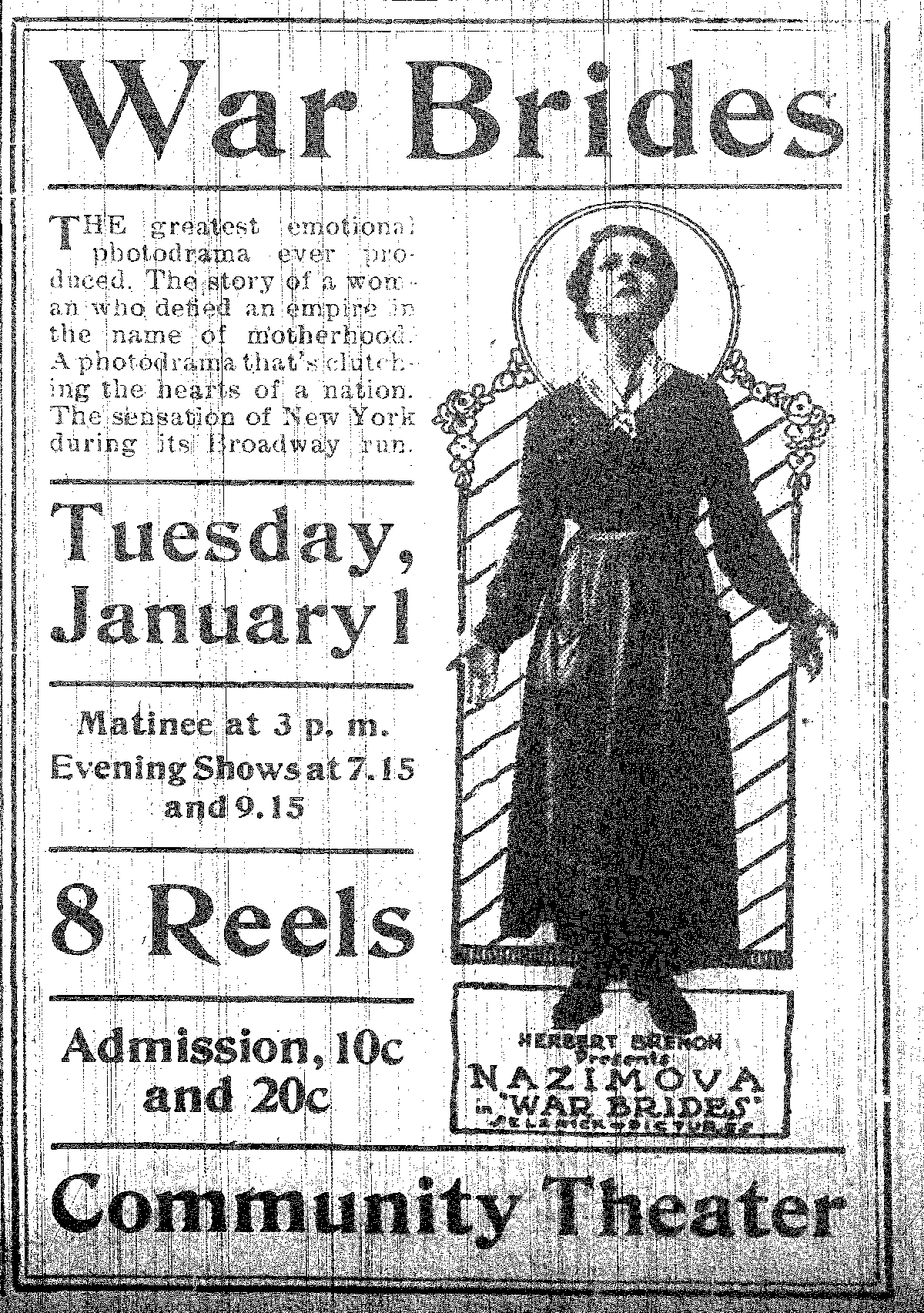You may have been to the theater to see “Coco” or “Star Wars – The Last Jedi” over the holidays. The first is a 3D computer-animated musical fantasy while the other is an American space epic. One hundred years ago, the movie fare was very different in Kinsley. On New Years Day, an “emotional photodrama” entitled “War Brides” was playing.
On Tuesday, January 1, 1918, for a mere dime or 20¢, you could attend one of three showings at 3 p.m., 7:15 p.m. and 9:15 p.m. Advertised as an an eight-reel film, it was playing in the newly constructed Community Theater, which still stands as the Palace Theater in Kinsley.
Here is a description of what you would have seen:
“War Brides” is an intensely dramatic story, but while it has to do with conditions brought about by war, there are no battle scenes. A trench is shown, and the effect of the fighting upon the troops, but no battle scene is enacted. The main story has to do with the sufferings of the women at home. Joan, the young widow, defies the military authorities, and urges the young women of the village to refuse to become brides of the departing soldiers. She is imprisoned, but escapes, and leads a band of mourning women to meet the King and protest against war. Her own individual message she delivers in a most dramatic manner.” (Kinsley Graphic, December 27, 1917)
Having a film about war without a battle scene is not the only difference a modern audience would find if attending this film. It was a silent film. All the dialogue and action would have been read by the audience while a local pianist played the score.
Alla Nazimova, a Russian born classical stage actress, was the star in this her first onscreen role. The original 1916 film did very well in the United States, bringing the studios a profit of $300,000, and was widely acclaimed by critics. The film did have a pacifist message and was banned in some cities and states. By 1917 it had been withdrawn from circulation on the grounds that “The philosophy of this picture is so easily misunderstood by unthinking people”.
However, by the time “War Brides” came to Kinsley on January 1, 1918, the producer, Lewis Selznick, had edited the film to give it an anti-German slant.
Now for a little more about the plot which comes with a Spoiler Alert. When soldiers try to hold Joan back from the King, she kills herself in front of him. The title card on the film for that scene reads, “If you will not give us women the right to vote for or against war, I shall not bear a child for such a country!”
With that, I will save the topic of women’s suffrage for another post, and hope you are planning a New Year’s celebration that is a little less dramatic.

